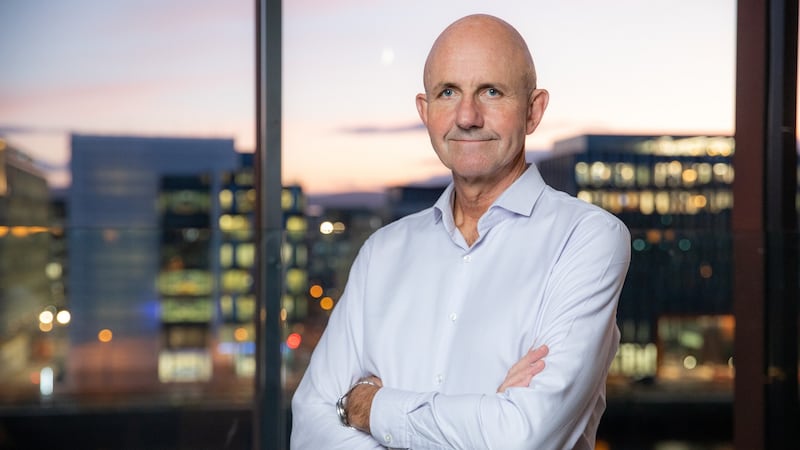With ambitious environmental targets to reach by 2030, reducing Ireland’s carbon emissions has been at the forefront of not just the public sector and policies, but the private sector too. Using digital technologies – which comprise anything from data centres to sensor-equipped waste bins – will be key in helping the country reach its goal.
According to the World Economic Forum (WEF), digital technologies have the potential to cut global emissions by 15 per cent, says Karl McDermott, head of connected solutions at Three. “This is due to the role that digitalisation can play in reducing emissions across numerous sectors by providing real-time, accurate information to assist with decision-making.”

The WEF says that it is through the “fourth industrial revolution – particularly 5G, the Internet of Things [IOT)]and artificial intelligence [AI] – that the digital sector can take the pace of change to the next level”.
One example of the sort of digital technologies that are helping reduce emissions are smart energy meters that track high energy consumption areas and peak usage times to enable a better-informed energy reduction plan. Smart meters also allow the introduction of microgeneration where consumers can contribute to the energy grid with their self-generated power, McDermott says.
“Similarly Internet of Things devices play a big role in providing smart home devices for heating, air conditioning, and lighting. IoT sensors reduce energy consumption, generate renewable energy on-site and measure carbon consumption plus.
“IoT and smart technology in the energy sector have been projected to result in saving more than two billion metric tons of carbon dioxide per annum.”
Digital sustainability for business
“Much of the debate about climate change and sustainability is, understandably, preoccupied with issues concerning energy, waste, pollution and many other related concerns,” says Luke McDonnell, senior corporate communications manager at Huawei. “The role of digitalisation and digital transformation is often acknowledged, but its full potential as a factor in delivering sustainability is rarely explored in full.”

According to an Amárach report, 49 per cent of Irish organisations think digital technologies will play an important role in achieving their sustainability goals over the next three years, with 43 per cent also saying sustainability now aligns with their organisation’s values and aims.
“Companies are now overwhelmingly seeing carbon reduction as fundamental to their business operations, according to the report, but with SMEs tending to be further behind on their journey towards sustainable business operations relative to larger firms,” McDonnell says. Cloud, 5G, IoT, machine learning, AI and virtual reality were all cited as the technologies that will be most important for their organisation’s sustainability objectives over the next three years.
Building better
It’s not only businesses that will benefit from digital technologies, but the actual buildings themselves. “We’ve seen over the years how digital technology is used in buildings to enable them to be more efficient,” says O’Hora. “That technology is long established at this stage and it’s now moving into the next stage of how digital technologies can make buildings more efficient and have a lower carbon footprint.” Some companies are beginning to use technology to look at the embodied carbon in a building.
“They’re able to see how much carbon is locked into a brick to really understand the full carbon life cycle of a building. This will help to make informed decisions about how we can reuse and repurpose buildings rather than knocking them down.”
Data centre dilemma
Data centres are somewhat contentious given how much energy they are perceived to use and the fact that Ireland is home to quite a few. “There is a huge momentum to decarbonise data centres, underpinned by the national target that 70 per cent of electricity is to be renewable by 2030,” says Aideen O’Hora, director and co-founder of Sustainability Works.

"In fact, data centres are huge advocates for buying renewable energy, she says, and the long-term benefits have to be considered. “There might be concerns now about their energy use, but we have to think longer-term and more systemically.”
“Data centres are traditionally regarded as high energy users, but the advent of green data centres means that this is changing. Green data centres utilise digital technologies to introduce energy-efficiency initiatives to lower their carbon footprint,” says McDermott. Green data centres also use digital technologies to monitor their real-time power and adjust accordingly.
“The emergence of smart technologies that allow data centres to be monitored remotely means that there is no need for permanent on-site employees with their heating and lighting needs [which differ from those required by the equipment ], so the energy needs are reduced. Green data centres also take advantage of digital technologies to monitor their real-time power in line with demand, and adjust accordingly.”
Future-proofing
“Ending the world’s reliance on fossil fuels is a core part of mitigating climate change and there is the growing need to reconfigure global energy sources to foster better energy security,” says McDonnell. Energy sustainability, security, and access to reliable and affordable supplies of energy are all challenges that are front of mind for many businesses in Ireland. From solar and wind power, to digital monitoring systems and power storage, there are many ways to deploy technology to drive sustainability.
“As Ireland looks to realise the ambitious targets outlined in the Climate Action Plan 2021 and its new digital Ireland framework, now is an opportune time to harness the potential of impactful digital technologies to quicken our transition to long-term sustainable growth underpinned by a secure energy framework.”











